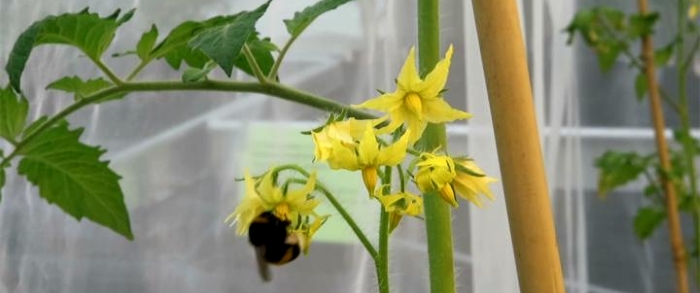Podcast: Play in new window

BOB HIRSHON (host):
A fertility-boosting virus. I’m Bob Hirshon and this is Science Update.
(Bumblebee sonication)
Bumblebees don’t just visit flowers – they sonicate them, latching on to the pollen bearing parts and shaking them like crazy to free up cascades of pollen. The behavior is a boon for plants – more pollen means more seeds. Now, University of Cambridge plant biologist John Carr and his colleagues report in the journal PLOS Pathogens that a virus is exploiting the bee activity for its own benefit. Carr says while infected plants look puny and unattractive to most pollinators, they’re irresistible to bumblebees.
JOHN CARR (University of Cambridge):
The virus infection changed the biochemistry of the host plant to actually make them somewhat more attracted to bumblebees.*
HIRSHON:
As a result, infected plants produce more seeds than healthy plants do. Over time, plant populations could become increasingly prone to viral infection instead of becoming resistant. I’m Bob Hirshon, for AAAS, the science society.
Story by Bob Hirshon
*The viral infection actually makes the plants more attractive to the bumblebees, not more attracted. Science Update assumes all responsibility for the error.
